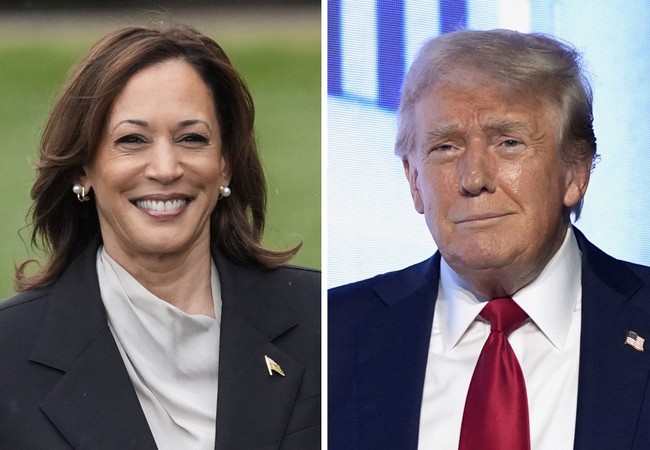
This article was originally published on Washington Examiner - Opinion. You can read the original article HERE

Tensions between Israel and Hezbollah continue to escalate. Hezbollah rocket and drone attacks on northern Israel have forced tens of thousands of people to evacuate their homes. Should war erupt, its effects could reverberate through the energy market.
What happens in southern Lebanon will not stay in southern Lebanon. Iran would likely come to Hezbollah’s aid even more vociferously than it did Hamas. After all, Hezbollah is Shi’ite, the Islamic Republic’s original proxy, and its insurance policy against an Israeli attack on the regime’s nuclear program. Tehran also values Hezbollah’s strategic geography astride both Israel and the Mediterranean Sea.
Iranian strategists may seek to disrupt the regional energy trade in order to amplify pressure on Israel, moderate Arab states, and their Western supporters. Indeed, there is precedent. On Sept. 14, 2019, Houthi rebels attacked Saudi Aramco’s oil processing facilities at Abqaiq, temporarily halving Saudi output and reducing global production by 5%.
While Hezbollah can theoretically target Israeli gas production in the eastern Mediterranean, such attacks would have a negligible effect on global prices. Offshore Israeli gas facilities are hard to hit, even if Hezbollah drones or rockets could penetrate their defenses. Should they go offline, the effect on global prices would be small. Simply put, Israel’s Leviathan field is not Abqaiq.
A collective response by the so-called “axis of resistance” would be more dangerous. Disrupting Eastern Mediterranean gas fields and transport routes, striking ships transiting the Bab el Mandeb Strait, and seizing tankers in the Strait of Hormuz could disrupt global supply. As risk heightens, speculative trading and insurance hikes could amplify prices higher.
Already, the components of such a strategy are in place. Houthis harass ships and tankers transiting the Red Sea between the Bab el Mandeb and Suez Canal, the main route for Middle Eastern oil and East Asian goods to Europe. In 2023, around 9 million barrels of crude oil and petroleum products traversed the Bab el Mandeb. The Suez Canal corridor handles 15% of global maritime trade. Some tankers have altered their routes, opting for the longer passage around the Cape of Good Hope. Others weather higher insurance premiums.
Any targeting of tankers going to or leaving the Ceyhan oil terminal could affect Iraqi, Iraqi Kurdish, and Azerbaijan oil transiting Turkey for European markets. The regime would likely not do so directly for the sake of its own plausible deniability and relationship with Turkey, but it could green-light such actions by Hezbollah or Syria-based militias. Tehran has already equipped Hezbollah with anti-ship missiles, drones, and remote-controlled vessels that it could use to target oil destined for countries it deems unfriendly.
Iranian authorities could ratchet up pressure further by disrupting the transit of nearly 21% of global petroleum products that transit the Strait of Hormuz, which is destined for India, China, and Japan. Even if Iran did not close the strait with mines, missiles, or drones, the Revolutionary Guards’ confiscations of foreign tankers disrupt trade. While Iranian diplomats’ claims of innocence and suggestion that such moves are rogue actions have little merit, they are often sufficient for conflict-averse Western diplomats to counsel against retaliation.
In recent months, Supreme Leader of Iran Ali Khamenei has railed against the Abraham Accords and the supposed betrayal by Arab leaders they represent. The regime in Tehran and its proxies have a history of targeting critical infrastructure in Saudi Arabia and the United Arab Emirates. While both countries have moved to improve their relations with the Islamic Republic, Tehran may still target its production facilities if Khamenei believes Riyadh and Abu Dhabi are aiding Israeli efforts.
CLICK HERE TO READ MORE FROM THE WASHINGTON EXAMINER
With such threats possible to the global energy trade, how should the United States react? It might be tempting to pressure Israel to tolerate the growing Hezbollah threat on its border, but demanding democracies stand down in the face of terrorism does not win peace. It only encourages further terrorist aggression.
Rather, the path to peace lies with strength and a realistic assessment of enemy strategy. If the U.S., Europe, and moderate Arab states wish to neutralize the threat the “axis of resistance” poses to the global economy, it is essential to unravel its growing stranglehold. This will require extricating the Houthis from the Red Sea coast, creating a permanent task force to protect facilities in the Sixth Fleet area of operations, and augmenting security for shipping at risk of hijacking in the Persian Gulf. The cost for the U.S. and Europe may be high, but it pales in comparison to what the West will pay if it allows Tehran and its proxies to threaten global energy markets.
Saeed Ghasseminejad is a senior Iran and financial economics advisor at FDD specializing in Iran’s economy and financial markets, sanctions, and illicit finance. Follow him on X: @SGhasseminejad.
This article was originally published by Washington Examiner - Opinion. We only curate news from sources that align with the core values of our intended conservative audience. If you like the news you read here we encourage you to utilize the original sources for even more great news and opinions you can trust!










Comments